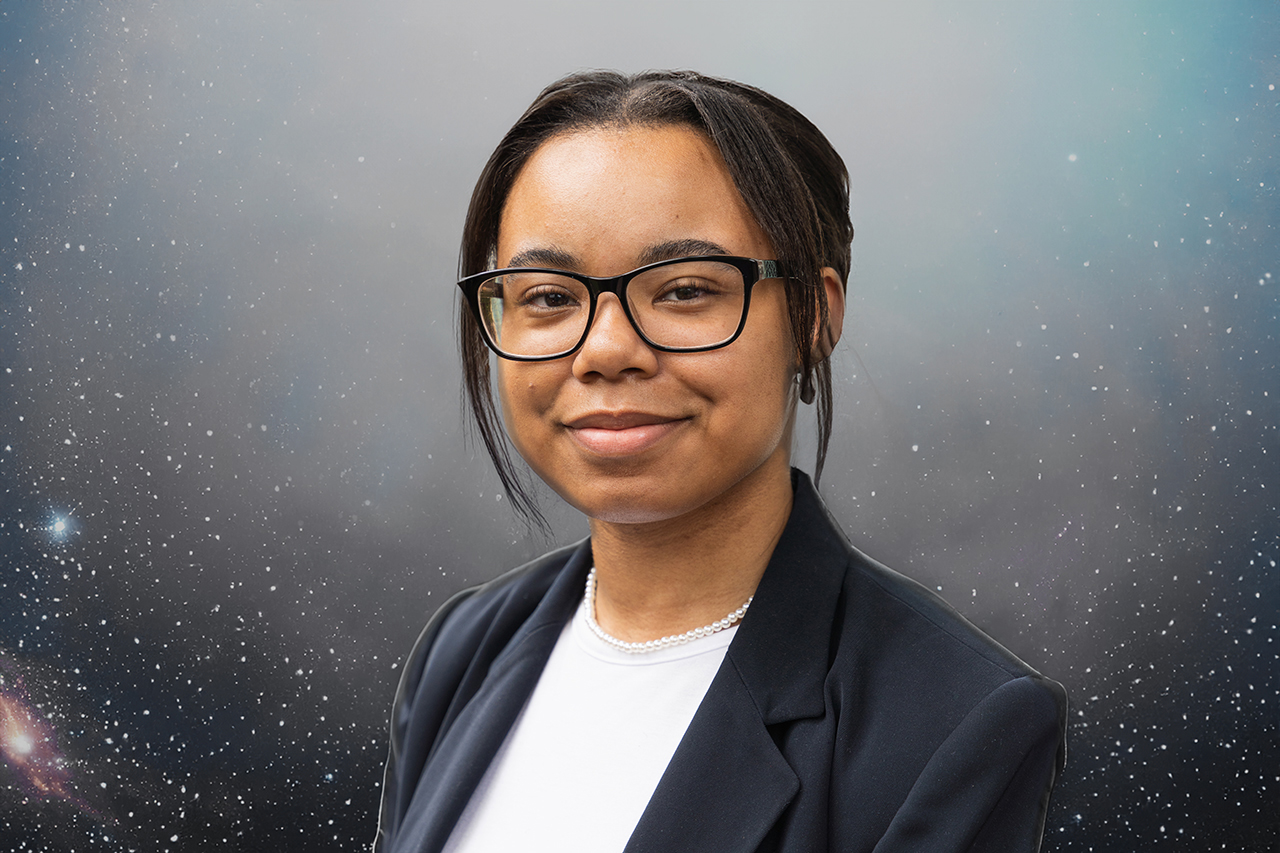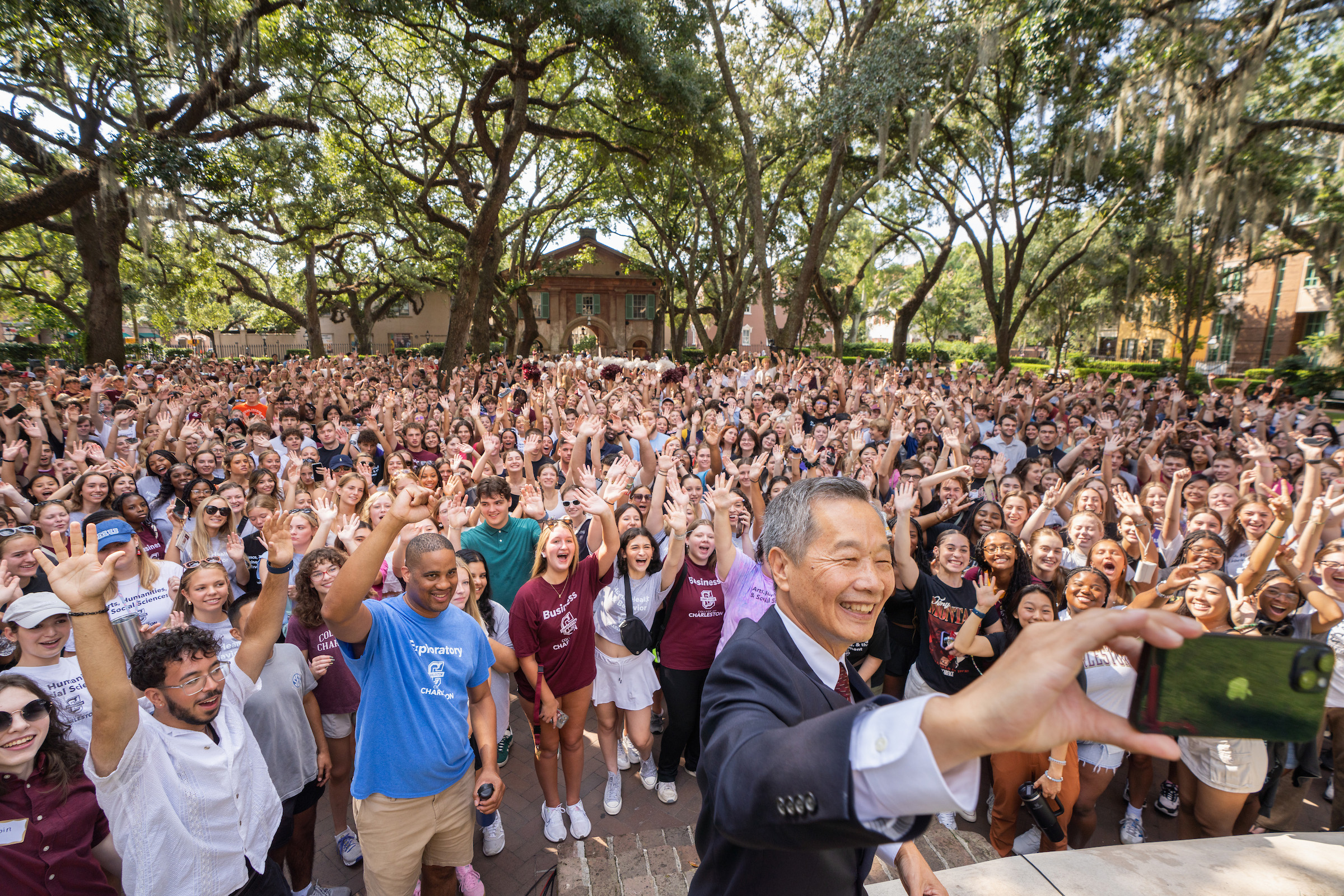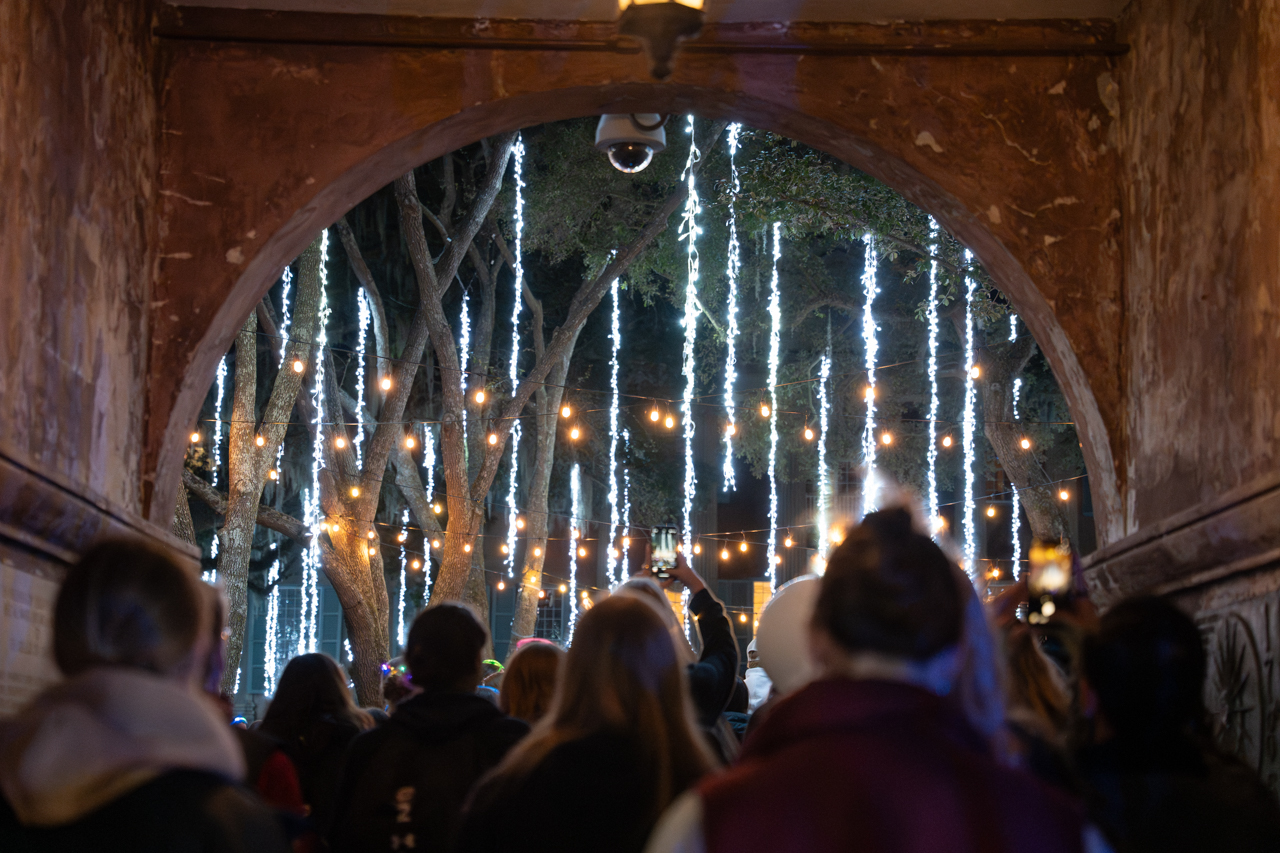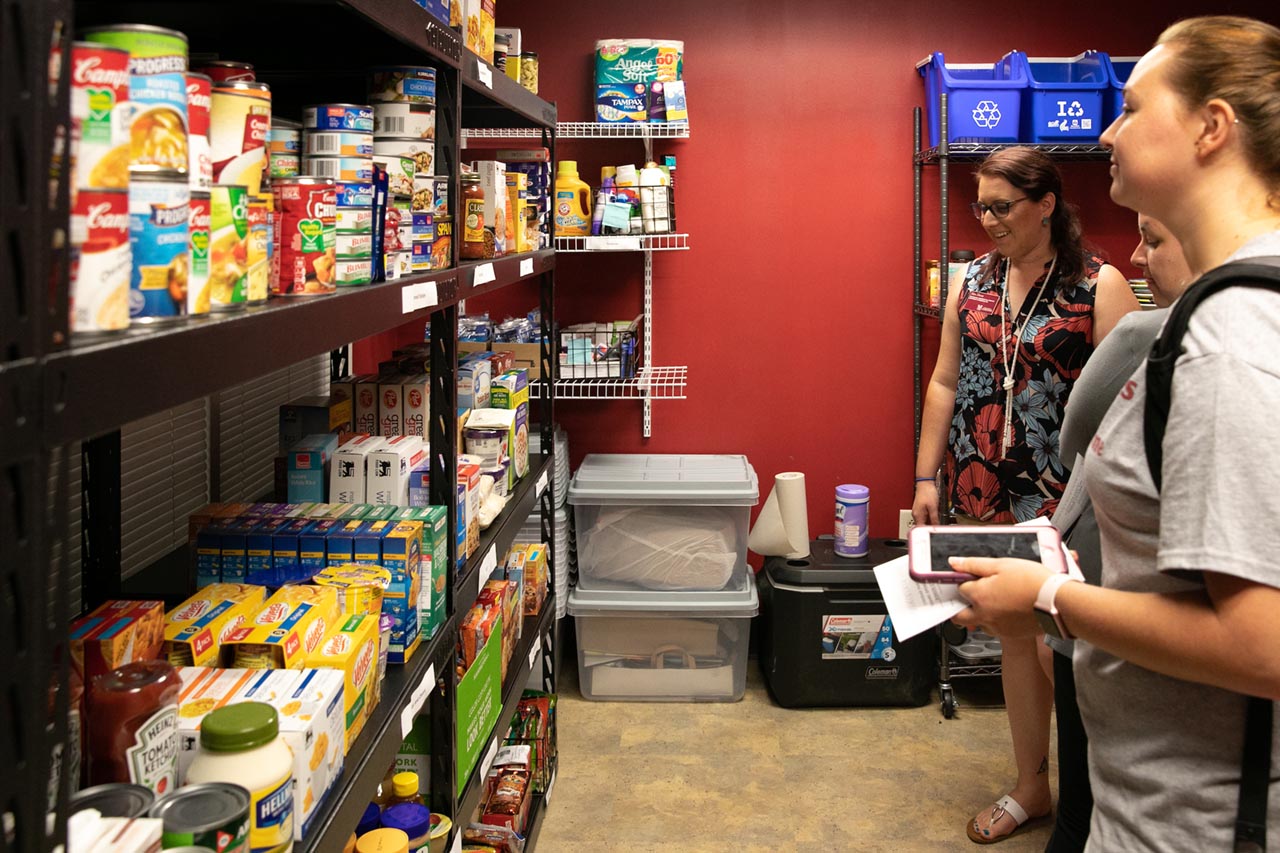College of Charleston Student on NASA Mission for the Future
Treashure Richardson's astrobiology studies at the College and her internship at NASA are all part of the plan for fulfilling her mission for the future.

Photo generated by Catie Cleveland
Treashure Richardson has been obsessed with space exploration since she watched the dystopian thriller Interstellar while in middle school. In the film, a NASA physicist attempts to save the citizens of Earth by transporting them to a new planet.
Fast forward several years, and the astrobiology major found herself interning with NASA with a similar goal in mind.
“I want to study astrobiology because we’re not going to be able to live on Earth forever,” says the College of Charleston junior. “With climate change, the Earth is overheating and resources will begin to deteriorate. I want to learn about other Earth-like planets we could possibly live on. We need to take more action toward this because it’s projected that we may have as little as 50 years left on this planet.”
The internship program at NASA is extremely competitive, and Richardson feels fortunate for the opportunity.
“I applied multiple times,” she says. “You are competing with similar students from across the globe.”
As part of her internship, Richardson paired with other students to build a mock mission to Mars.
“Everything had to be perfect,” she says. “NASA gave us a budget, and we had to decide what to buy, how we were going to make the trip happen and how we were going to get the mission back. We presented to the scientists who oversee the Artemis missions.”
Richardson’s team came in second place, and their plans are now in progress at the Johnson Space Center.
While Richardson spends a lot of time thinking about the future, being at the College has allowed her to explore the past. Richardson is part of the first cohort of 1967 Legacy Scholars at the College of Charleston. Named for the year the College enrolled its first Black students, the program honors these and other trailblazers by providing opportunities to study, learn from and extend the legacy of African Americans on campus.
“Being a part of the 1967 Legacy Program has provided me with such a cultural experience and knowledge that I don’t think I would have gotten anywhere else,” she says. “It has also provided me with the opportunity to network and connect with such historical figures and trailblazers from the integration of this historical university.”
The College was the first university that Richardson toured when she was thinking about her education after high school. A native of Columbus, Georgia, she often visited her grandparents in South Carolina, so she was familiar with Charleston.
“When I got here, after seeing the vibes and the atmosphere, I really, truly enjoyed it, and I thought I wanted to attend,” she notes, adding that the College also happened to be the only school in the state that offered her original major, astrophysics.
Indeed, studying at the College was just the first step of furthering her goal of working for NASA in the future. Next, Richardson plans to enroll in the Air Force and attend graduate school and then earn her Ph.D.
And that is what you do when you want to get to space … and beyond!



